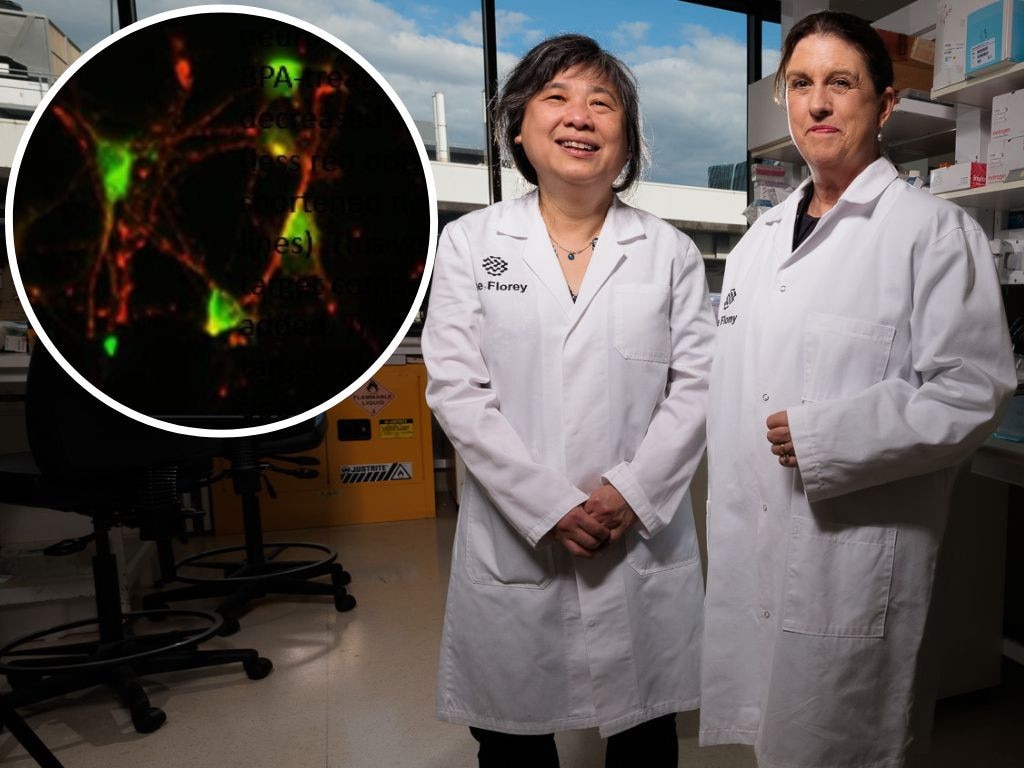The autistic psychiatrist who diagnoses (autistic) patients
Anna Rebowska was encouraged to pursue a role that required less talking. She didn’t take that advice.

Anna Rebowska had just diagnosed a teenage patient as autistic. This news made the girl deeply suicidal. “There’s no future for me,” she said to Rebowska, her consultant psychiatrist, “I’m never going to have a job or a life.”
Rebowska didn’t pause. “I said, ‘What are you talking about? Do you know I’m autistic?’” It was the first time Rebowska had revealed this to a patient and the girl found it a welcome but “massive shock”.
The idea of autistic psychiatrists is still shocking to many: not just patients but colleagues and hospital management. Can having a disorder of communication be appropriate for a profession that depends on forming a therapeutic rapport?
Yet far from being an anomaly, initial studies hint that psychiatry may be one of the most overrepresented fields for doctors with autism. What are successful autistics other than those with a deep skill at understanding the workings of human brains in all their diversity?
Mary Doherty is the founder of Autistic Doctors International, based in the UK. Of their 1200 members, they were astonished at first to find their second most popular field is psychiatry, after general practice. And given the relative numbers of those specialisms, psychiatry would be proportionately the most common field, a finding Doherty, who is both a consultant anaesthetist in the NHS and autism researcher, replicated in a study she conducted.
Another small survey cited in the British Journal of Psychiatry in 2022 found more than one in a hundred British psychiatrists identified as having autism, higher than those in general practice. “It seems a relatively new belief that autistic doctors even exist,” said the researchers. But the figure, this study said, “is likely to be far more, given psychiatry ... selects for many autistic strengths”.

“I was really surprised,” Doherty says, “when we realised psychiatrists are our most overrepresented speciality in our group. People expect us autistic doctors to be radiologists, microbiologists and pathologists, stuck in dark rooms away from the public. But absolutely not. It is people in relational specialties: general practitioners and psychiatrists.”
Some may imagine the reason psychiatry has more autistic medics is simple: their speciality’s understanding of neurodiversity. Quite the reverse, Doherty says. “Psychiatrists have a much harder time in terms of disclosing that they are autistic.”
The presence of autistic psychiatrists remains taboo. The condition is mired in stigma, with psychiatry, ironically, an even more hostile environment to autistic doctors. Some psychiatrists have been penalised for revealing their status. In the Royal College of Psychiatry paper cited above, it stated “the real risk of losing one’s credibility and job” is why experienced psychiatrists were often reluctant to seek or disclose an autism diagnosis.
Until Rebowska started sixth form in the UK, she had never been in mainstream education. From when she started school in her native Poland until the age of ten, difficulties with the basics meant she was in remedial school, where she would tell teachers that she wanted to be a doctor and “it probably didn’t sound very realistic, but I was determined. Medicine looked to me as a child like a puzzle that you solve, then somebody’s very happy at the end.”
Aged ten, she was catapulted into a gifted programme and by 31 she was one of the youngest child and adolescent consultant psychiatrists in the NHS; she is now 38. Rebowska has always been open about having autism. As a junior doctor, mentors suggested that she pursue a career in anaesthetics, saying, “You don’t have to talk to people if they’re asleep.”
Yet Rebowska noticed that her appraisals showed communication was one of her strengths. “I had done a lot of pre-reading, if you like,” Rebowska says, “from very early on, just trying to figure people out, crack the code.”
Rebowska says there are two theories about autistic people and empathy: one that they have little; or conversely they have so much they find others overwhelming. In her case it is more complex, and she believes her “spiky profile” for empathy is very useful as psychiatry can be harrowing. She says she feels “cognitive empathy”. “I recognise somebody’s upset. I care, and it’s my job to help them to feel less upset. So I’m going to put a lot of energy into what we need to do to help them. But the ‘feeling’ bit is not there for me. If someone is sitting there very upset, their emotions don’t wrap on to me. That can be very helpful. It’s not the same emotional labour as for a lot of neurotypical colleagues, they will feel very drained, they will find it difficult.”
In a patient emergency, she finds it easy to remain calm. “I don’t get anxious or heightened,” she says. “But if you’re not careful, people can perceive you as cold if you are not matching their emotional tone.”
However, Doherty tells me that many autistic psychiatrists are in hiding, “and certainly my advice to our junior members is not to disclose’‘. One female psychiatrist told her why she would not reveal her diagnosis: “She’s afraid she wouldn’t be promoted if a leadership role came up.” She tells the story of one female psychiatrist who, before her diagnosis, was so prejudiced about autism she wondered if it was “emotionally safe” for autistic adults to have children. After her diagnosis, this became a painful memory, as she knew herself to be a loving and capable mother.
“But she realised that if she was thinking that as a doctor with long training in psychiatry,” says Doherty, “there’s no way her colleagues would not think that about her.”

I speak to one eminent consultant psychiatrist who does not disclose her diagnosis. This woman even won awards for communication after she was diagnosed at 37. She told me that in the mid-20th century Hans Asperger, an early autism researcher, nicknamed those academic boys with autistic traits as “little professors”.
“The more we know about the female autistic presentation,” says this psychiatrist, “the more we see how they are overrepresented in psychiatry. They are the ‘little psychiatrists’.” These “little psychiatrist” girls have the intense focus required to excel in a decade-long exam schedule. But they have also often masked their autism by a deep study of the human mind.
As a girl she “could have taken a GCSE in Thomas the Tank Engine”, but “found friendships difficult”, she says. Before she consciously studied how to pass among her peers, “I was definitely considered odd.” One of the triggers for her diagnosis was health problems caused in her thirties by a lifelong diet limited to a handful of plain foods. “I told myself I ate like an autistic seven-year-old,” she told me. “Then I thought maybe I don’t eat like an autistic, maybe I am autistic. It would be useful to know whether I am or not, before I hold myself up as a yardstick for not being autistic.”
When she confided in a senior psychiatrist colleague, he said, “Our colleagues would not believe me.” Her neurodivergence “suits my clinical work, so I have been able to thrive. But I can do a complicated piece of work and go home and be unable to open my front door. I also became very ill from not eating the right food.”
However, she chooses not to “come out” about her autism. Partly she wants the focus to be “all about the patient”. But also there is stigma. “It is improving, but it’s two things. There is a lot of talk about autism and ADHD being overdiagnosed. I believe they are underdiagnosed. People don’t say, ‘Oh my God, dementia is really fashionable! Everyone has it these days.’ People would be aghast. But there is this sense that autism isn’t real. On the other hand, there aren’t any senior people in my area who have come out as autistic. I think that would be helpful, but it’s complicated.”
Doherty believes raising awareness of fields where autistic professionals can thrive could be “life-saving” to those newly diagnosed. For Rebowska, the moment she decided to share her diagnosis with a young patient made her reflect, “What are we doing to the next generation if all the successful autistic people are in hiding?”
The Times



